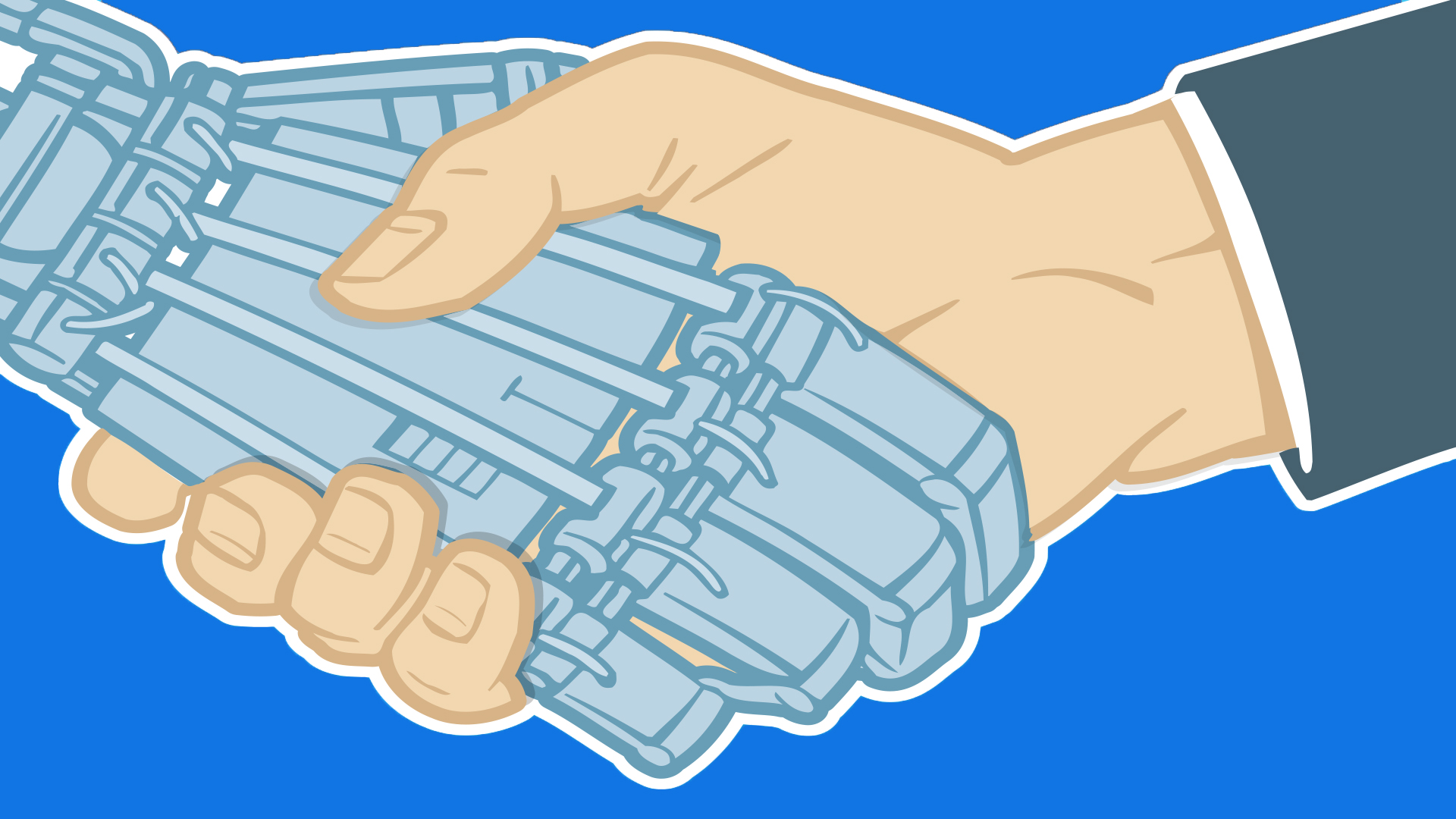
This is part 2 to our 5 Part Series on Empathy and its relation to artificial intelligence, machine learning, and where we are headed in the future with technology. Follow the Kairos team as we explore empathy in the tech field and ways to implement it.
The debate over machines and their role in our society is not new, people have been fearing machines, or robots, will replace us in the workforce and slowly take over the world since machines came into the workplace during the Industrial Revolution, via the 1800s. However, we were wrong to be afraid.
"The Industrial Revolution ushered in humanity's First Machine Age — the first time our progress was driven primarily by technological innovation — and it was the most profound time of transformation our world has ever seen…”- Andrew McAfee and Erik Brynjolfsson, The Second Machine Age: Work, Progress, and Prosperity in a Time of Brilliant Technologies
Since then the world has prospered, not failed, and job creation has grown exponentially due to our technological advancements. Looking at the United States alone, the U.S Bureau of Labor of Statistics reports that the unemployment average rate is at a 5.0% today.
So, would you be surprised if we told you that artificial intelligence (AI) will create more jobs for humans instead of removing us from the picture completely?
The AI In Your Home and Everyday Life
You may be thinking “robots” when you think of artificial intelligence. Walking, talking, human-like machines who can perform every action you can. Although some people are building human-like robots, when we think of artificial machines we think of cell phones, TVs, and other inanimate objects made from bits of metal and plastic that are part of our home dwellings.
Artificial intelligent machines are already here and they may be part of your favorite applications. You can find artificial intelligence in:
- Smart cars - Tesla
- Movie streaming applications - Netflix, Amazon Prime
- Virtual personal assistants - Siri, Google Now
- Web shopping - Amazon, Target
- Fraud detection - Online Banking from Chase, Capital One, Bank of America
- Music streaming - Pandora, Spotify
- Video games - The Last of Us, F.E.A.R
These examples prove that when AI is executed correctly, and thoroughly into a product, it turns out to be functional, sensible and something humanity benefits from. Another plus is that these machines are noninvasive, in fact they are very easily integrated into our daily lives without much thought.
The bigger picture is that all of these companies creating products with AI have also created hundreds, if not thousands, of jobs for humans. Just check out Apple’s impressive job creation with the iOS ecosystem, 627k, and if you step back and look at how many jobs this has created it’s over a million. Machines need humans to create, design, maintain, repair, update, understand, and process data and for each of these pieces a team of people, not machines, are needed.
Emotional AI Will Force New Job Creation
Imagine you walk into your hair salon and instead of being greeted by a receptionist, you are greeted by a kiosk who, by using facial recognition, recognizes who you are as you have been here before. The kiosk checks you in with your stylist and notifies you that the shampoo you bought is out of stuck yet they have another kind that you may like.
You get your haircut and you hate it, how could your stylist do this to you? As you pay, per kiosk, you decide you are never coming back to the salon again, then you hear a voice…
“You look upset and as if things didn’t go quite right today. Let me get a customer care consultant to speak with you and throw in that new shampoo, for free”.
You realize it’s the kiosk speaking to you who has recognized, through emotion analysis, that you aren’t happy.
A woman approaches you with the shampoo and let’s you know that the Kiosk alerted her that you were upset. She consults you and shows you some ways you can wear your new hairdo and suggests a follow up appointment if you still aren’t satisfied in a week. You feel like you have been understood, taken care of, and you decide to come back again. Without the kiosk recognizing your emotional state, none of this would have happened.
OVERHEARD AT KAIROS
Kaye: "Can AI have a sense of humor?"
Ben (*adopts serious voice*): "Yes, according to Christopher Nolan's sci-fi epic Interstellar, AI will be a key component to the survival of the human race. Mainly via the medium of levity."
You may be thinking, “Okay, but what about the receptionists? The Kiosk replaced them”. True, there no longer is a receptionist yet there is a new role of a customer care consultant, who could have been the last receptionist. Let’s also discuss the kiosk and the software inside of the kiosk; jobs were created for the kiosk to be designed, built, and same for the software, and those jobs may have not existed before.
There are already companies in the world using humans and machines in the workplace, working side by side, supporting one another. Retail stores like Rebecca Minkoff and Kate Spade are using AI machines to help serve customer needs and understand what customers desires. There are still humans working in the store, helping clients find the right outfits, listening to their concerns and praises, and ringing them up yet machines are also working hand and hand with them.
Emotion Analysis is the Key to Technological Advancements
It is important to remember that we are the creators of AI, we control it, and as it advances we will advance with it just as we have advanced after machines were introduced into our lives over the past 200 years.
The question is, how will machines continue the advance? At Kairos, we believe it is through emotion analysis, machines recognizing our emotions and communicating empathetic responses. In the kiosk hairdresser example, facial recognition is paired with emotion analysis for both a personal and emotional experience. This is important as it builds loyalty, trust, and most importantly, empathy.
Empathy, it is what allows us to connect to one another on a deeper level and without empathy we tend to feel misunderstood, isolated, or disconnected from others. For us to feel connected to the machines we will be working it is imperative for them to understand and communicate empathetically responses.
Learn more about empathy's importance in our lives: Read Part 1 of our Empathy in AI Series.
As we develop machine intelligence to mimic our own intelligence, we must stop and remember that part of our cognitive process depends on our emotional process. For humans to relate to machines, machines must be able to relate to us beyond being clever, funny, and witty. They must be able to recognize how we feel, why we are feeling our emotions, and understand how to elicit an emotional response for us to integrate them into our daily lives and work side by side with them.
Approaching the Age of AI with empathy involved in the design of our machines will make all the difference. We are already lacking the skill of empathy in the workplace without machines and we are human, imagine a world of machines without it?
So What’s Next?
Our next steps must be to create AI that can effectively communicate with us at a human level and then we must start preparing for the shifts that will occur in the workplace. When AI is developed with more human concepts, we will have more time at work and in our lives. Leaders, in the workplace, who start thinking about how the work dynamic will change with emotional AI will be one step ahead. They will have time to plan out new projects that do not need AI, how to better use the free space that will come with machines, and how to use technology cooperatively with their employees.
There will be jobs replaced by AI, especially jobs that are predictable in scale, but many will evolve and new jobs will be created. History has proven that humans always evolve with technological advancements, this is nothing new, and embracing the innovative change that is occurring will continue to make the world a better place.
Are you interested in bringing your AI to the next level with emotion analysis? Talk to us today about our developer APIs and SDKs - we'd love to help.
Part 1: What is Empathy?
Part 2: Empathetic Machines Creating Jobs?
Part 3: Impressive Artificial Intelligence Using Empathy Now
Part 4: Is Facial Recognition and Emotion Analysis the Answer to Empathetic AI?
Part 5: Empathy in AI Series: Part 5, The Future of Empathetic AI

Ben Virdee-Chapman
Ben is the CDO & Head of Product at Kairos, a Human Analytics platform that radically changes how companies understand people.
